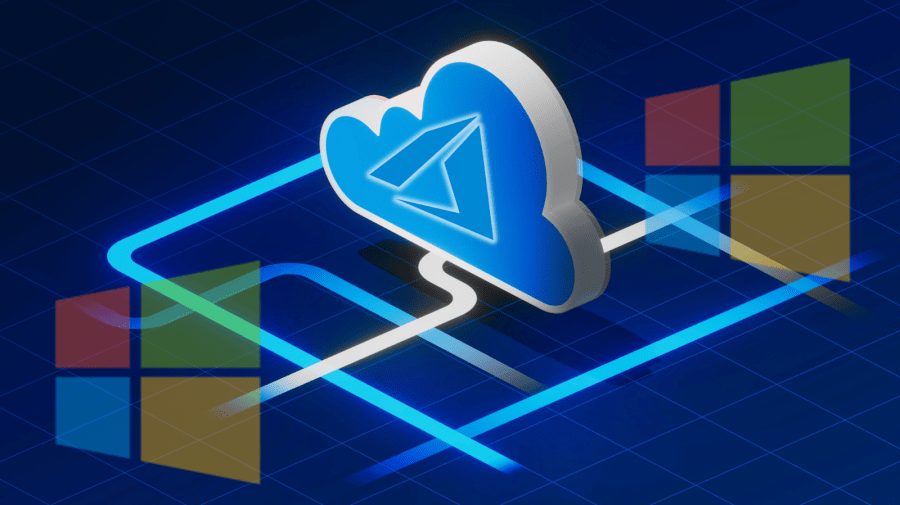
Azure is a cloud computing platform that allows businesses to carry out a wide range of functions remotely. Still a little confused about Microsoft Azure? Let’s break it down a bit more. Although the definition of “cloud computing” changes from provider to provider, think of it this way: cloud computing is any program or action that runs on a remote server.
An entirely online platform, Azure is optimal for today’s workplace landscape. Increasingly, people are working remotely or settling into hybrid work environments; since you can access Azure from anywhere, it pairs well with this new approach to work.
But accessibility is just one of the platform’s pros. It’s also extremely convenient. Besides coming with some standard built-in features, Azure also allows you to add your own automation as needed. Moreover, since Microsoft hosts Azure you and your company don’t need to worry about maintaining any servers; if you lose power or internet service at the office, Azure continues to work.
Here, we’re going to delve further into everything you need to know about Microsoft Azure, so that you can determine if it’s a good fit for your business.
Is Microsoft Azure Good for Businesses?
The short answer? Yes. Although every business has different needs and approaches, Azure is a great platform. You can program Azure to do almost anything you need for your business, no matter if you’re a fledgling company or a big-name business.
One of the most significant benefits of Microsoft Azure is, of course, the remote server storage. While other services offer cloud storage, Azure enables you to do more than just store your company’s data. Since this cloud computing platform is powerful enough to monitor the data you input, it can also assist your operations.

Need an example? With Azure, data automatically uploads to the cloud from either a website or point of sale (POS) system. After the data is uploaded, the program analyzes said data, and provides valuable takeaways, ranging from what items customers are looking at the most to which products are most profitable. This functionality makes Azure a great tool for both marketing and management specialists.
Plus, small businesses can use Azure’s insights to level the playing field; major corporations collect tons of consumer data and transform it into business strategy, but, usually, small businesses don’t have the same resources to conduct such research. Azure remedies that problem.
How to Use Microsoft Azure
If you’re interested in using Azure for your business, there are a few things you should consider first. Who will be using the platform and what will they use it for? Will users need any training? And, first and foremost, how much does Azure cost?
How to Get Started With Azure
To start, figure out the goals you have when it comes to using Microsoft Azure. Do you need data storage, machine learning or virtual machine access — or maybe all of the above? It’s also important to discuss your needs and wants with the coworker who’ll be overseeing your company’s Azure account as well as those colleagues who’ll be using the platform most often.
If you want to get a better sense of what Microsoft Azure is capable of, try taking a class that provides an overview of the platform. That way, you’ll understand Azure’s abilities and limitations, allowing you to better set up the program for your business needs. Best of all, Microsoft offers several online courses on using Azure as well as product demos.

If Azure fits your business goals, contact Microsoft to discuss your needs and pricing. While Azure requires contacting a Microsoft sales representative to get exact pricing information, you can view an estimate based on the build you want — how many employees need access and what features you want all factor into this price estimate.
One of the many benefits of Microsoft Azure is that you don’t need to know computer coding to use it. However, to unlock its full potential — and create tailored programs — you’ll likely need a coder. However, once a coder creates the program(s) you need, everything should run on its own, so, while that’s an important consideration, it shouldn’t break the bank. Plus, Azure supports several languages, including Java, Python and C++.
Alternatives to Azure
If you don’t think Microsoft Azure is a good fit for you, there are some alternatives that may better meet your business needs. After all, despite Azure’s near-unlimited growth potential, its costs and complexity may not work for every business.
The largest cloud computing platform in the world, Amazon Web Service (AWS) is one of Azure’s biggest competitors. Another notable player in the cloud computing industry is Alphabet’s Google Cloud system, which, although a bit less well known, is growing quickly. While all three — Azure, Google Cloud and AWS — provide similar services, the real differences boil down to the small details, to what you intend to use cloud computing for on a daily basis.

If you’re looking for a cloud computing alternative — or something to use alongside a cloud computing platform — look into Tableau. Fantastic for analyzing and visualizing large chunks of data, Tableau’s one big drawback is that it doesn’t store the data you collect. Depending on your business needs, this focus on analysis, not storage, may not work.
Finally, if you’ve considered using Azure’s servers to store data or host a website, opting for a purpose-built solution may be the best route to take. A company that specializes in website hosting and/or cloud storage will generally be better for a small business that doesn’t need all of Azure’s more complex features — nor the costs that go along with that.
Of course, many website hosting and cloud storage providers also rely on Microsoft Azure or AWS, so be sure to check in with your provider of choice. In the end, you just want to make sure your company’s data is in good hands.






